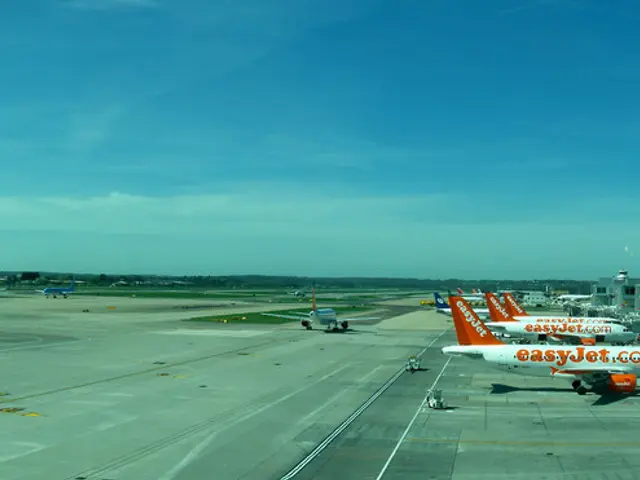Criticizes Traffic Congestion: Auto Club Voices Concern over Excessive Vehicle Number - Inadequate space for large vehicles?
Let's talk trucks, automobiles, and traffic on those long, open roads - motorways in Germany.
There's a significant issue brewing, according to the Auto Club Europa (ACE), taking a swipe at the dangerous overcrowding on these busy highways. Between April 15 and June 3, the traffic club conducted a control at rest areas, counting the number of trucks parked post-8:30 PM each day. The situation on the southern Berlin Ring (A10) and the A24 in Mecklenburg-Vorpommern was particularly harrowing due to improperly parked heavy goods vehicles.
ACE's findings, for instance, revealed an overcrowding of 60 percent at the Eichelborn Nord rest area on the A4 in Thuringia and a staggering 58 percent at the Galgenberg Nord on the A38. However, no overcrowding was detected at the Hermsdorfer Kreuz West.
Last year, the regional management of the federal motorway company acknowledged the extremely high utilization of facilities, particularly on the A4 and A38 axes in Eastern Germany. The Thuringia regional association of the transport industry also demands more truck parking spaces on motorways in the region.
So, what's going on here? Well, ACE's data snaps a picture of massive overcrowding at 31 monitored rest areas in the eastern German states, admitting a total of 2,168 parked trucks, while offering 1,412 spaces, resulting in an overcrowding of around 50 percent.
Twenty-one of these locations presented specific traffic hazards, especially during nighttime with limited visibility. The prime offenders were trucks parked in entrances and exits.
Experts argue that the shortage of truck parking spaces on German motorways—resulting in overcrowding and increased traffic risks, especially in Eastern Germany—stems from several converging factors such as insufficient infrastructure, geographic disparities, and regulatory challenges.
Factors Contributing to the Shortage
Infrastructure Insufficiency
- The current supply of truck parking spaces in Germany (between 30,000 to 50,000 spaces) is well below the demand, resulting in a possible deficit of up to 50,000 spaces.
- The excessive demand for truck parking is due to the escalating volume of road transportation year after year.
- Despite the German government's plans to invest €400 million over the next four years, experts question whether this investment will be sufficient to address the shortfall.
Geographic Inequities and Planning Gaps
- Germany's role as a transit country results in increased pressure on parking facilities, especially at key transit corridors and border regions.
- Infrastructure has historically been less developed in Eastern Germany, causing overcrowding and safety concerns in these regions.
- Inadequate planning for parking needs, particularly in regions experiencing rapid growth in logistics activities, exacerbates the shortage.
Regulatory and Operational Hurdles
- In an attempt to optimize parking space utilization, the government explores solutions like compact parking (using telematics for parking management) and mixed-use parking (permitting passenger car parking spaces to be used by trucks at night). However, only a few locations currently employ these systems.
- Operational challenges persist due to truck drivers struggling to find safe parking at night, leading them to park in unauthorized or dangerous locations.
Consequences
- Traffic hazards, such as trucks parking in restricted areas or on service roads, escalate the risk of accidents and set dangerous conditions for both truckers and road users.
- The shortage of parking spaces produces lost productivity for drivers who waste time searching for parking, and can lead to violations of rest periods mandated by the EU regulations.
- The excessive demand for truck parking spaces on German motorways, as shown by the Auto Club Europa's data, is linked to the insufficient infrastructure, particularly in eastern Germany, where geographic disparities and regulatory challenges also contribute to the shortage.
- The shortage of truck parking spaces on German motorways, leading to overcrowding and increased traffic risks, has far-reaching consequences in the industry, finance, and transportation sectors, including traffic hazards, lost productivity for drivers, and potential violations of EU regulations.








